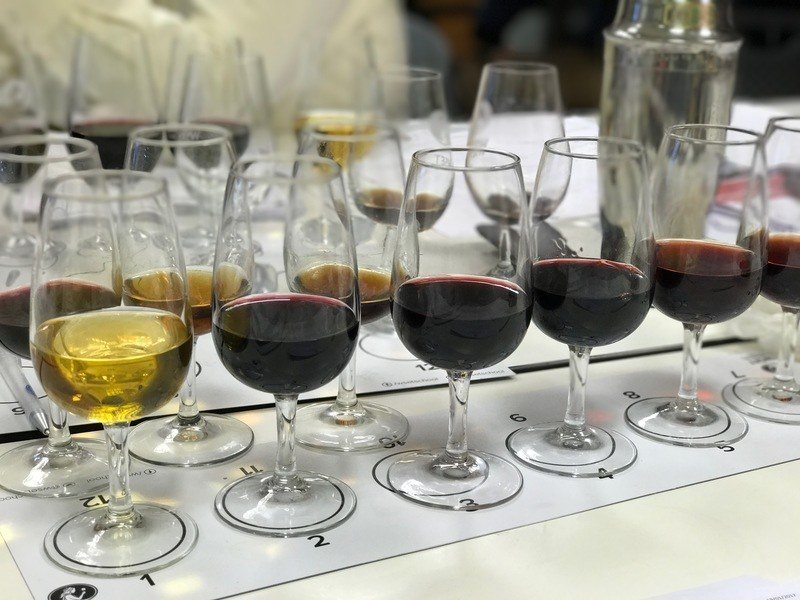When I was at school, I had the time but not the enthusiasm to learn new things. Now I have enthusiasm but no time so I’m trying to refactor how I learn things.
But for the last decade or so I have been trying to learn lots of new things, including
- I spent seven years learning Dutch to a reasonable conversational standard
- I got my FAA commercial pilots licence and an EASA instrument rating
- Earlier this year, I finally completed my WSET diploma in wine (which sounds like more fun that it actually is)
- I’m just starting to learn Romanian
Surely, there are some neat tricks, technology and tactics I can use. This is what I’ve tried so far. If you have any other suggestions, please let me know!
- Index cards. I don’t use a so-called hipster PDA but I quite like the idea of using old-fashioned index cards to capture the key points to memorise. I did this when I was at university and again for my instrument rating exam. It works for me because the information has to go into my brain before I can write it out again. The cards are also portable so easy to use when revising. Big tip: don’t leave your cards behind in a bagel shop as I did in 2004 before my FAA instrument rating check ride.
- Smell-coding. Taking a hint from Proust and his madeleine, when I was at university, I used to smell code my different card decks with aromatherapy oils. Lavender for medieval history, lemon for 19th century culture and intellect and so on. When I went into each of the seven exams I took in my third year, I’d dab the appropriate smell on my sleeve and the contents of the cards came flooding back. I came across the cards in December when I was unpacking after moving house. The little oil stains were still there but the smell had gone but to this day the scent of lemons gets me thinking about Ruskin, Darwin and William Morris.
- Reinforcement and repetition. One of my teachers at school told me that if you review material the next day, a week later and a month later it is much more likely to enter your long-term memory.
- Flash cards. I was never so good with these. Writing one thing per card seems somewhat wasteful to me. I use cards with 10 words of Dutch vocabulary on them but I write the translation and ‘het’ or ‘de’ by each one so I can use it as reminder not a quiz. I do like The Flashcard Exchange, which has a Dutch vocab deck online but also other interesting sets of cards. For my fortified wine exams, I built a deck using TinyCards. I also like Memrise for my Romanian vocab.
- Linkwords and visual association. I bought a bunch of books in the ‘How to improve your memory’ category. Frankly, I found them all a little impenetrable. More along the lines of religious mysticism than practical handbooks. However, the link words idea, where you associate an image with a word or name, seems quite helpful. Also, it kinda works with names at a party. My big fear is that I’m going to call someone Mrs. Albatross or something and give the link word not the real name.
- Mind maps. These are great. Tony Buzan is the great exponent of the idea. More on Wikipedia. I find them useful for brainstorming but less so for note taking. However, when I used to go into an exam, I’d draw a very rapid, five-minute mind map for each question that would form the structure of an essay and recall all the data I had memorised on my cards. For me, at least, they are more useful as an aide to recall than an aide to memorisation. I’ve used ConceptDraw MindMap occasionally and one of my editors does lots of work with it. Also, check out Bubbl.us, a free online mindmapping program.
- Chunking up big tasks. Learning Dutch is a big, long project. My CPL training will take most of the year. However, the studying can be broken down into ten-minute chunks. A few words of vocabulary every day. A module of the excellent (if chirpy) King Schools Commercial Pilot Interactive CD-ROM course every day.
- Daily habit. Ive used Joe’s Goals and Momentum to track daily habits and I’ve added entries for ‘learning 10 words of vocabulary’ and ‘complete one CPL module’ each day. I can’t recommend this programme highly enough.
- Quizzes. One of my flying instructors had the habit of asking me difficult questions from the course at odd moments during our flights together. In part, he was trying to simulate distractions as an examiner might, but it really helped me remember things. Recalling something seems to reinforce the memory in my mind. Similarly, my wife runs through her lines with me (she’s an actress). She has memorised them well enough but she needs to know so intimately that they seem like her own words. Having to recall them spontaneously seems to help.
- Multimedia. I think that we remember things with different parts of our brain. There’s a visual memory, a procedural memory, a sort of muscle memory and so on. I use books and computer-based training for flying. For Dutch, I have a tutor and I use The Rosetta Stone multimedia course. No one thing seems to be perfect, but the combination is better than any single method. A medical student at college pasted all her notes up on the walls of the loo in our staircase. I don’t know if it helped but I had a pretty good idea what happened to the notes after she passed her exams!





